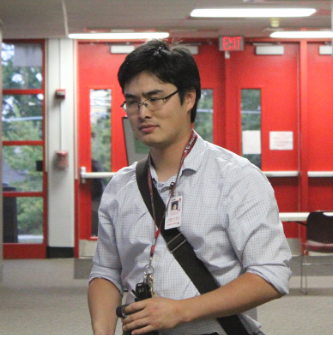
Students who plan on taking Advanced Placement United States History (APUSH) next semester have the opportunity to do half of a summer assignment which is also their first test-grade for the APUSH class. Students looking forward to take Ryan Ogi’s class, will get to know first hand what the class work will be like. This year was actually Ogi’s first year teaching APUSH.
The assignment is 11 pages with about three questions per page, and several blanks scattered around to fill in with definitions of key terms. There is a lot of information from the reading to retain.
“The assignment is reading from the AP U.S. history textbook we have, the first four chapters, [is] filling out a… essentially a reading guide,” Ogi said. “Just a notes guide, a bunch of questions, definitions that they should be filling out as they read through the text, and the person who created it was actually Mr. Abling, the assistant principal for sophomores.”
Big assignments can be stressful, Valana Ruiz, a student who has been taking the course all year, tells us how she finished the assignment on time. Ogi recommended not doing the assignment the week before the quiz.
“It depends if you break it up over time it probably wouldn’t be as hard. If you read it all in one day, you’d get tired halfway through so it’d take a while. I waited until the last 3 or 4 days before school,” Ruiz said.
The summer assignment is solely for those who plan on taking APUSH. Students who aren’t sure about taking it can try out half of the assignment and decide for themselves if they are ready for the challenge.
“The summer assignment is designed for students who already signed up for AP U.S. History, however what I’m starting to do is give the first half of it to students who are interested, see if they can complete it, do the quiz that goes with it, so that they can determine if they themselves want to actually do AP U.S. history as well,” Ogi said.
Several classes know about the class and have a chance to see what the work will be like and what they can expect. It’s a big opportunity for students who are planning ahead.
“I actually went in to talk to the World Honors class, I coordinate with the World history teachers to go in to talk about the class, I introduce the summer assignment and actually hand out the packets to all the students especially those who are interested in taking the class,” Ogi said.
In previous years, students who planned on taking APUSH were required to do the assignment over the summer. However, this year students have been given the opportunity to do half of the assignment this semester from February 1st until February 15th.
“All summer, so from the end of May when we have our first few meetings of what the expectations are, how AP is going to look like, until the first tuesday that we had the first quiz for the summer assignment,” Ogi said. “This month I actually split the summer assignment in half so I gave students the first half of the summer assignment. So chapters 1 and 2 in the textbook and then I’m going to be giving out a quiz for them.”
A comment from sophomore Natalia Valenzuela tells us why she is planning on doing the assignment over the summer.
“ I didn’t choose to do the summer assignment during this two week period but I anticipate doing it before summer break,” Valenzuela said. “I didn’t do it because I had other assignments in other classes that were a higher priority.”
Previously mentioned, students are able to decide before they register is they want to take the class, if students choose to do the APUSH assignment and the quiz that goes with it, the score will be reflected in Ogi’s grades next year but will also count towards Mr. Dwyer’s class this year as well.
“For AP U.S. history specifically, we have so much history to cover so it actually helps us save a lot of time in the beginning of the school year and it can also pretty much determine if the students are going to stay in before class starts.” Ogi said. “Can they finish it before classes start or before the quiz, if they can, great, they will most likely be fine if they continue that work ethic, if not, it can actually help students determine if they should actually be in the class before it’s too late.